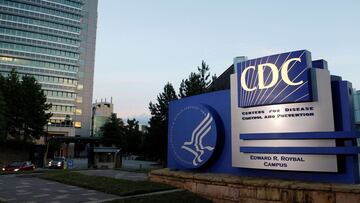Coronavirus in the US: how many variants have there been?
Covid-19 variants have the scientific community worried but most mutations in its genetic makeup do not impact its ability to spread or lethality.

According to the US Centers for Disease Control and Prevention (CDC), the three main variants found in the United States are B.1.1.7, which originated in the United Kingdom; the B.1.351 variant which originated in South Africa; and the P.1 variant which was traced back to Brazil.
Other variants have been identified but the number of cases reported has not reached the “variant of concern” level that the other three have.
B.1.1.7 from the United Kingdom
The UK variant has been identified in fifty-two US states and territories, or reporting jurisdictions, as they are referred to by the CDC. The CDC stated in early April that their modeling estimates that this variant is now the most dominate strain of covid-19 in the US. Globally, this variant has been found in over half of the World Health Organization’s member countries.
A study released in early April estimated that this variant is between 43-90 percent more transmissible than its predecessor lineage. Although this variant spreads more efficiently, the research team was not able to determine that it is more deadly. However, public health experts warn that with a more contagious variant, more people may need to be hospitalized and if the medical infrastructure cannot handle the increase in patients, more people could die as a result.
B.1.351 from South Africa
This variant, which has been traced back to South Africa, was first identified in the US in late January. The B.1.351 variant has been identified in thirty-six reporting jurisdictions, with South Carolina, Maryland, Virginia, Georgia, North Carolina, and Florida reporting the most cases. Unlike the other two variants, the CDC has yet to release any information on how the mutations present in the variant impact its ability to spread or the severity of the cases it is able to cause.
However, in March, the WHO released a statement that although the new strain was not seen to be more deadly, “preliminary studies suggest the variant is associated with a higher viral load, which may suggest potential for increased transmissibility, this, as well as other factors that influence transmissibility, are subject of further investigation.”
P.1 from Brazil
The Brazil variant has been identified in forty-three countries and has already been detected in thirty-one reporting jurisdictions in the United States. The first US case of the variant was identified in late January in a Minnesota resident who had just returned from a trip to Brazil.
Preliminary studies and modeling of this variant show some evidence that it is more transmissible than previous lineages, but more information is needed. Scientists are encouraging countries to place a greater focus on genetic surveillance to capture increases in transmission of the variant to gather more information on how it spreads.
Variants and vaccinations
Giving the virus fewer chances to mutate is critical in allowing the vaccines currently available to protect us. Effectively, that means reducing the number of infections – the less chance the virus has to reproduce, the less chance of producing mutations. Studies addressing vaccine efficacy and variants have been released and the findings are encouraging. One of the key takeaways are that although the vaccine may prevent a lower rate of infection from variants, those who received the vaccine did not develop severe symptoms or require hospitalization.
Limiting the spread of new variants
Additionally, the World Health Organization has released guidance that equitable access to vaccines and prioritizing high-risk groups in all areas of the world can limit the spread of new variants. Reports released on vaccine rollout globally warn that at the pace and scale countries are currently vaccinating global herd immunity could be delayed by more than four years. Public health experts also warn that the lack of access to vaccines in “less-resourced areas” is not only a moral issue but also threatens the economic recovery of countries around the world, whether they are fully vaccinated or not.
